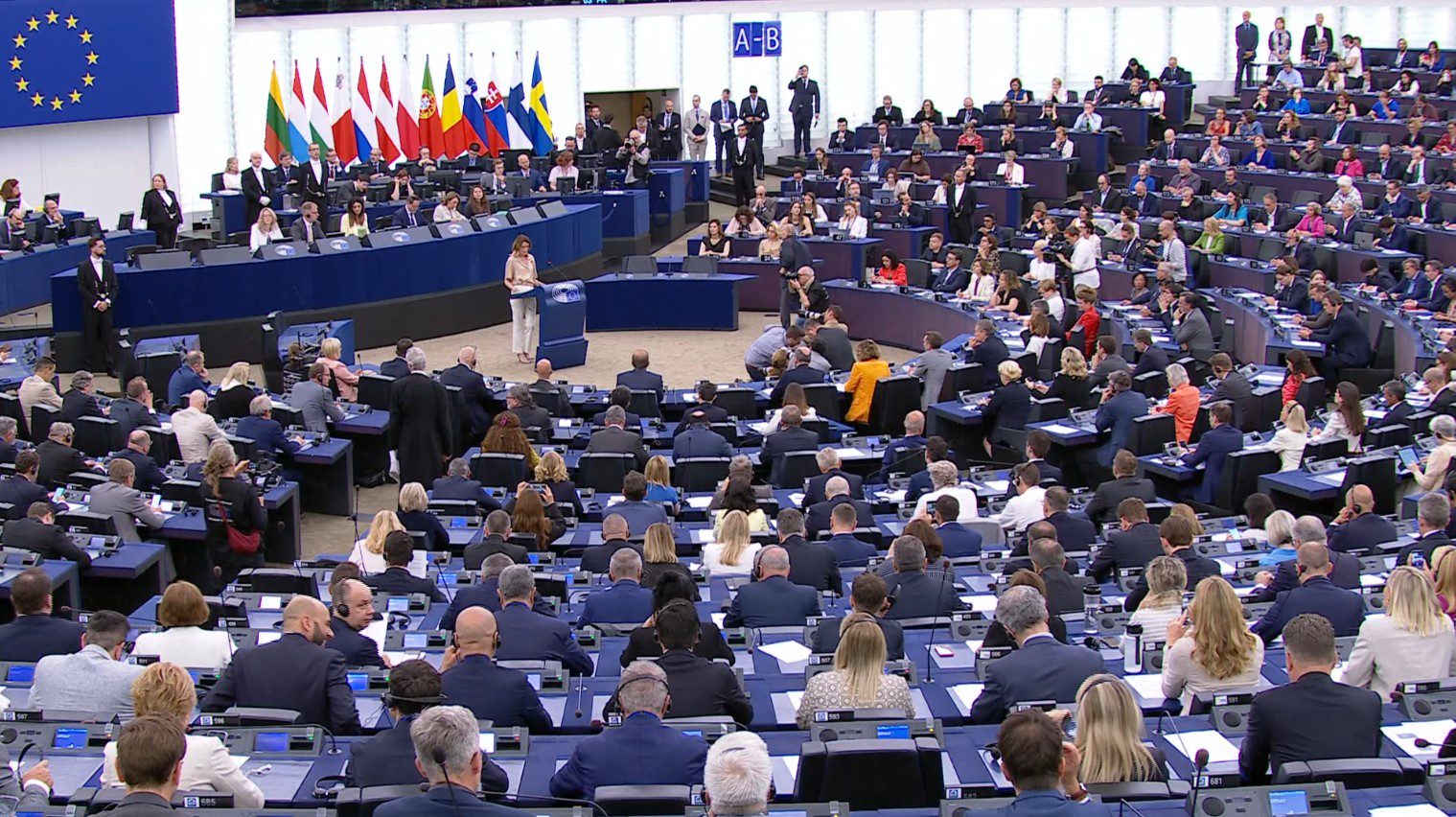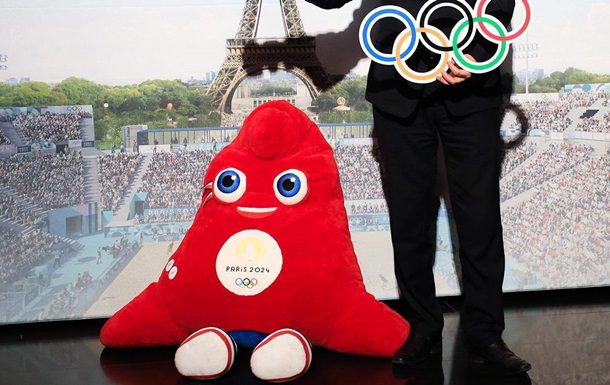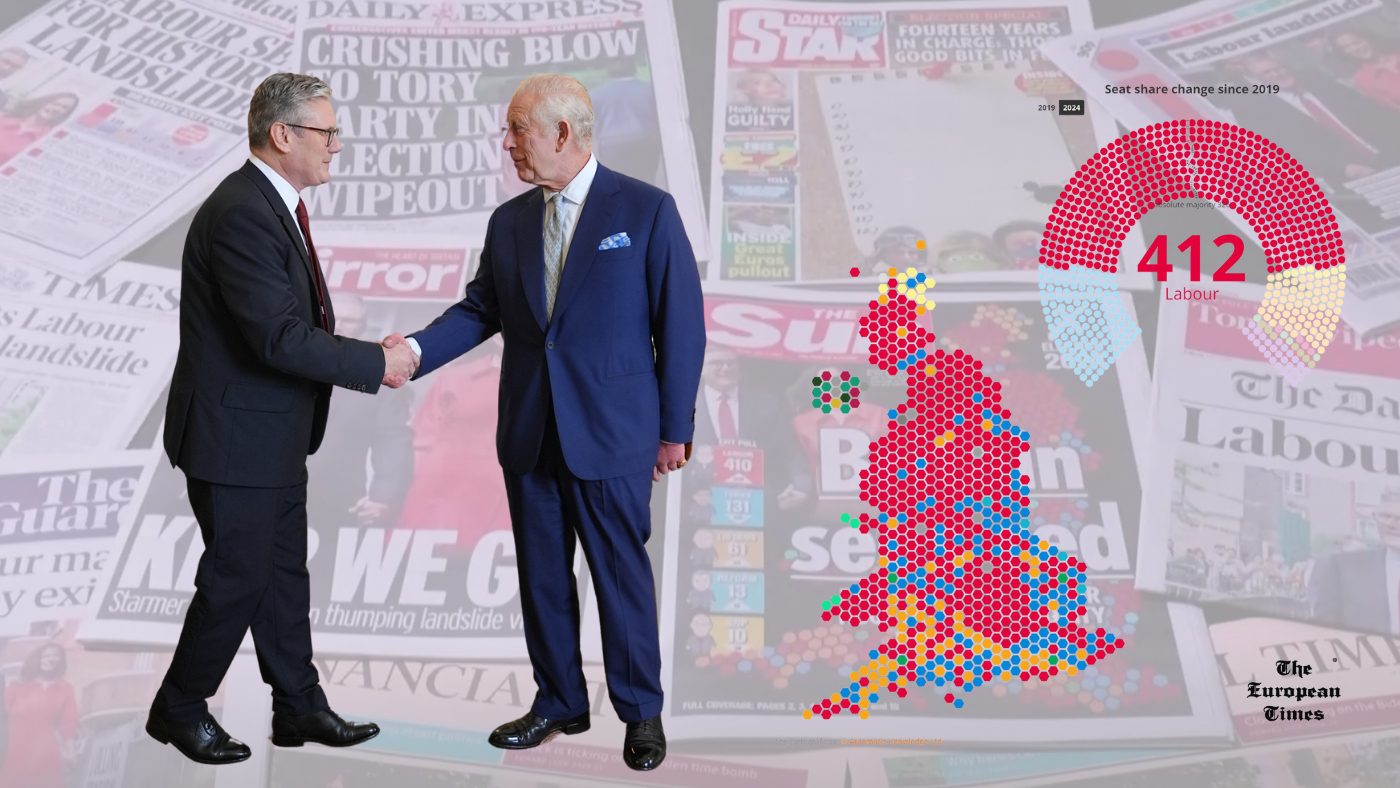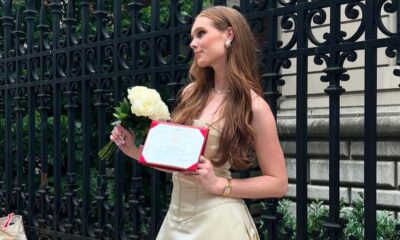Politics
A unanimous commitment to freedom of belief “Respect to be respected”

Freedom of belief – The Fundación para la Mejora de la Vida, la Cultura y la Sociedad (Foundation for the Improvement of Life, Culture and Society) gathered once again this year in Madrid to present the Religious Freedom Awards, awards that for the past decade have sought to recognise the enormous work of individuals and institutions in defence of freedom of belief and the fundamental human right to freedom of religion, thought and conscience.
The general secretary of the organising foundation, Isabel Ayuso Puente, opened the ceremony by giving an emotional welcome to the authorities and national and international representatives gathered at this tenth edition of the awards, which honoured on 15 December 2023 the university professors Igor Minteguía Arregui, Francisca Pérez Madrid and Mónica Cornejo Valle (see specific articles by clicking on their names).
Ayuso was especially grateful for the presence of religious leaders from different confessions, renowned academics, heads of civil organisations and other guests who, once again this year, supported with their attendance an event that aims to give visibility to the notable advances that have taken place in recent times to promote the diversity of beliefs to be increasingly “better known, more recognised and more respected” in our country.
It is a long road towards a more tolerant society that all those present here are travelling every day in their respective fields of activism, research, dissemination and social commitment.
State Institutions committed to diversity
Representing the public sector, the ceremony featured speeches by the Director of the Pluralism and Coexistence Foundation, Inés Mazarrasa, and the Deputy Director of Religious Freedom at the Ministry of the Presidency, Mercedes Murillo, which has become a happy tradition.
Mazarrasa began by saying that “it is always a very, very happy occasion to meet in such an impressive space as the Scientology headquarters here in Madrid, and to do so also to recognise the work of people who have in common the defence of a fundamental right such as the right to religious freedom”.
She placed special emphasis on the fact that a very important area of his work is “everything that has to do with dissemination, education and raising awareness of the right to religious freedom and, specifically, also of religious diversity. It seems fundamental to us to do so, and I believe that the video we have just seen also reflects this same idea”.
The director of Pluralism and Coexistence recalled that guaranteeing the real and effective fulfilment of this fundamental right enshrined in our Constitution, which is the right to freedom of thought, religion and worship, is a constant task that does not allow for relaxation or pauses, as “rights must be actively defended, otherwise, there are always, unfortunately, risks of regression, and therefore we must work for the recognition of those who defend and contribute from knowledge, from different areas of law, anthropology and sociology”, she warned.
Mazarrasa highlighted the daily commitment of the public foundation he directs, which is charged by law with promoting the visibility and knowledge of Spain’s heterogeneous religious reality in all its aspects.
For her part, the Deputy Director of Religious Freedom, Mercedes Murillo, also reaffirmed the need for the central administration to continue unwaveringly “the work that each of us carries out from wherever we are in favour of creating the conditions that allow for a fuller exercise of religious freedom in the context of increasingly open and plural societies”.
Murillo, after congratulating the work carried out by the Fundación Mejora, stressed that the decisive support for initiatives such as the Religious Freedom Awards, already consolidated as international benchmark awards in their field, should be understood precisely in terms of reinforcing this civic and political commitment to the normalisation, protection and permanent promotion of the rich religious diversity that distinguishes Spanish society.
Regarding the 2023 laureates, she said that “once again this year, three outstanding specialists in the field of religious freedom, Professor Igor Eguía, Professor Francisca Pérez Madrid and Professor Mónica Cornejo, whose respective contributions to the study, analysis and understanding of the legal and social aspects of religious freedom will be well-recognised at this event, are deservedly awarded. My congratulations and recognition to all three of them”.
A thought-provoking video
As a preamble to the reading of the minutes and presentation of the awards to the honorees in this 2023 edition of the awards, the secretary general of the Foundation for the Improvement of Life, Isabel Ayuso, presented a video based on an excerpt from the book “The Way to Happiness”, a work by the philosopher and humanist L. Ron Hubbard that includes a series of ethical and moral principles and guidelines to achieve personal well-being and contribute to a more just society.
The passage chosen for the occasion, from chapter 18 of this unique code of conduct, is entitled “Respect the religious beliefs of others”. A maxim that, for Ayuso Puente, perfectly condenses the philosophy that permeates these annual awards for the protection of freedom of conscience: “Tolerance is a fundamental cornerstone on which to build harmonious human relations”.
“Religious tolerance does not mean that one cannot express one’s own beliefs. But it does imply that trying to undermine or attack the faith of others often does more harm than good for coexistence”, the video states, which stresses a strong idea: “Faith and belief are elements that do not necessarily yield to logic, they cannot be settled in categories of rationality or irrationality”.
Given the complexity of this area and the “inability of the most privileged minds to settle historical metaphysical controversies”, the video calls for an exercise of prudent self-restraint: “In this ocean of controversy, we must navigate with respect. Respect the religious beliefs of others”.
A tolerant attitude that the hostess Ayuso Puente condensed with the phrase: “Respect to be respected”. An invitation to empathy that should guide relations in an advanced democratic society.
Ten years shielding a fragile right
The consolidation of these awards after a decade of existence highlights the growing relevance that the protection of religious freedom now has on the Spanish public agenda. However, despite the progress made, this right is not protected and still maintains a fragility that requires a sustained effort to protect it.
As Inés Mazarrasa, Director of Pluralism and Coexistence, pointed out in her speech, it is necessary to promote the recognition of religious diversity as a fundamental element of respect. This responsibility to actively ensure the consolidation of the rule of law that protects ideological diversity falls not only on the public authorities but also on civil society as a whole. “The challenge of integrating this complex but enriching mix of faiths within a framework of democratic coexistence concerns official institutions, citizen foundations, minority religious communities and citizens as a whole,” said Iván Arjona, who, in addition to chairing the Fundación Mejora, represents Scientology before European institutions and the United Nations.
Only through choral action that unites efforts will it be possible to protect the fuller exercise of freedom of conscience, which Mercedes Murillo, deputy director of Religious Freedom for the Spanish government, also advocated on this day. Although this path, as the ministerial representative pointed out, is not free of obstacles, the support and commitment of the entire social fabric is the best way to continue moving forward steadily.
All actors have a role to play in this collective challenge of peacefully integrating growing religious diversity. From the academic world through rigorous research, to the administrations through the reinforcement of the anti-discrimination legal framework, to civic foundations with their informative work, or the minorities of believers themselves with their activism and their demands in the face of any glimmer of intolerance.
The flame of the shared vigil
In this task of shielding the full normalisation of all spiritual options, the work of activists, religious, jurists and intellectuals whose theoretical production or practical intervention has been contributing for years to a better and deeper public knowledge of the complex and rich global and local multi-religious reality is of special relevance.
For the past decade, the Religious Freedom Awards, which every year recognise the life trajectory of some of the leading exponents in Spain of this active vigilance in defence of religious freedoms, have been especially devoted to giving visibility and highlighting this quiet but enormous collective work for a more tolerant society.
These are people from social activism, university classrooms, legal disciplines or inter-religious dialogue whose intellectual or practical contributions have been decisive in advancing knowledge of our heterogeneous religious reality in terms of peaceful coexistence.
If a decade after its launch, this torch is still more alive today than ever, it is undoubtedly also thanks to the exemplary faith and tenacity of those responsible for the Foundation for the Improvement of Life and to the unwavering support that the initiative has aroused since its inception among the host denomination of the awards, the Church of Scientology, already consolidated for years as a firm supporter of this plural Spain that is based on mutual respect.
The path is not without its difficulties, but the commitment of society as a whole continues to be the best guarantee for safeguarding in the coming decades the progress that we have all achieved together towards higher levels of respect for the legitimate diversity of ethical convictions that give transcendent meaning to human life.
Politics
European Parliament begins its 10th term

European Parliament Convenes in Strasbourg: New President to be Elected amid Growing Diversity
On a momentous Tuesday in Strasbourg, the European Parliament, following the recent European elections held on 6-9 June, officially commenced its proceedings. The session, presided over by the outgoing EP President, Roberta Metsola of the EPP from Malta, commenced with a musical interlude before Pina Picierno, the second Vice-President in the outgoing Parliament from Italy’s S&D, announced the contenders for the coveted Presidency of the Parliament.
The highly anticipated vote, conducted through a secret paper ballot, is set to occur immediately after the inaugural session. To ensure a fair process, eight MEPs, selected by lot, will oversee the election proceedings.
The distinguished candidates vying for the Presidency are Roberta Metsola representing EPP from Malta and Irene Montero from The Left in Spain. Ahead of the crucial vote, both candidates delivered succinct statements to the plenary, outlining their visions for the future of the European Parliament.
To attain victory, a candidate must secure an absolute majority of valid votes cast, which equates to 50% plus one. In the event of no clear winner in the initial round of voting, subsequent rounds may follow with the possibility of new or existing candidates being nominated under the same stipulations. If needed, a third round could ensue with the same regulations. Should no candidate emerge victorious after the third round, the two candidates with the highest votes in this round will advance to a decisive fourth and final round, with the majority winner emerging triumphant.
Upon the election of the new President, the distinguished individual will assume the leadership position and deliver a notable opening address, setting the tone for the parliamentary term ahead.
In this landmark tenth term, the European Parliament boasts 720 seats, an increase of 15 from the previous legislature. Notably, 54% of MEPs are fresh faces, marking a slight decrease from the 2019 intake of 61%, with the representation of women comprising 39%, down marginally from the 40% mark in 2019.
Among the diverse MEP cohort, Lena Schilling, a 23-year-old from Austria representing Greens/EFA, stands as the youngest member, while the seasoned Leoluca Orlando from Italy, a Green/EFA representative aged 77, holds the distinction of the oldest MEP. The average age of MEPs stands at 50, reflecting a diverse range of experiences and perspectives within the parliamentary body.
As the tenth term commences, the European Parliament encompasses eight political groups, an increase from the previous session. Additionally, 32 MEPs remain non-attached, underscoring the dynamic landscape of political affiliations within the Parliament and highlighting the vibrant tapestry of representation in the European legislative body.
Politics
For the first time in 40 years, the Olympics will not be broadcast in Russia

Not a single TV channel, streaming platform or cinema in Russia will show the competitions from the Summer Olympics in Paris, which begin on July 26, sports.ru writes. This happened for the first time in 40 years, when in 1984 the USSR boycotted the Olympics in Los Angeles.
The official explanation is that this time only 16 athletes will participate under a neutral flag, without an anthem and in “unpopular sports”. The unofficial thing is that this is a purely political decision of the Kremlin, and heads of federations call those who agreed to participate traitors, homeless people and foreign agents.
Paris Mayor on Russians at the 2024 Olympics: It would be better if they didn’t come
Anne Hidalgo condemned the International Olympic Committee’s decision regarding representatives of the aggressor country, she said already in March.
According to the official, it would be good if athletes from the terrorist country did not participate in international competitions.
“I prefer that they not come. We cannot act as if the invasion does not exist. We cannot act as if Putin is not a dictator who is threatening all of Europe today.”
At the same time, she added that such sanctions cannot be imposed against Israeli athletes, since Israel’s actions are different from Russia’s aggression.
“There can be no talk of imposing sanctions against Israel in connection with the Olympic and Paralympic Games. Because Israel is a democratic country,” the mayor told Reuters.
Photo: Social Network / korrespondent.net.
Politics
Keir Starmer Secures Historic Labour Victory, Ending 14 Years of Conservative Rule in UK

London – In a seismic shift in British politics, the Labour Party, led by Keir Starmer, has achieved a resounding victory in the UK general election, bringing an end to 14 years of Conservative governance. The results, which had been foreshadowed by months of polling, have given Labour its strongest parliamentary majority since 2001.
Labour secured an impressive 412 seats, far surpassing the 326 required for an absolute majority and more than doubling their 2019 performance. This landslide victory marks a dramatic turnaround for the party and signals a clear desire for change among the British electorate.
Upon learning of his victory in his central London constituency, Starmer declared, “The people have spoken, and they are ready for change.” This statement encapsulates the mood of a nation seemingly eager to embark on a new political chapter.

The Conservative Party, in stark contrast, suffered its worst defeat since its founding in 1834. The Tories lost at least 250 seats compared to their 2019 performance under Boris Johnson, ending up with a mere 121 seats. This historic collapse prompted the outgoing Prime Minister, Rishi Sunak, to apologize to “those Conservatives who have lost despite their dedication” while congratulating Starmer on his victory.
The election also saw significant shifts for other parties. The Liberal Democrats, led by Ed Davey, emerged as the third-largest party with 71 seats, a gain of 63 from the previous election. The Scottish National Party (SNP) experienced a dramatic decline, securing only nine seats, a loss of 38 compared to 2019. Sinn Fein, the Irish republican party, maintained its seven seats.

In a surprising development, the nationalist-populist Reform UK, led by Nigel Farage, entered Parliament with four seats, exceeding all poll predictions. The Green Party quadrupled its representation, winning four seats in total.
Starmer’s first address as Prime Minister was filled with promises of change and renewal. “We did it!” he exclaimed, emphasizing that Britons would wake up to find “a weight has finally been lifted from the shoulders of this great nation.” He stressed the urgency of rebuilding trust in politics and committed to serving all citizens, regardless of their voting preferences.
The new Prime Minister outlined his government’s priorities, including improving security on streets and borders, rebuilding infrastructure, and enhancing opportunities in education and employment. “Changing a country isn’t as easy as pressing a button,” Starmer cautioned, “We will rebuild the United Kingdom, brick by brick.”
Rishi Sunak, in his farewell speech, acknowledged the clear signal for change sent by the electorate. “I have heard your anger and disappointment. I take responsibility for these results,” he stated. Sunak announced his intention to step down as Conservative Party leader, but not immediately, allowing time for a formal process to choose his successor.
The election also marked a personal triumph for Nigel Farage, who finally won a parliamentary seat on his eighth attempt, representing Clacton-on-Sea. Farage hailed his party’s performance as “extraordinary” and vowed to fill what he sees as a “huge void in the center-right.”
In regional developments, Sinn Fein became the largest Northern Irish party in the British Parliament for the first time, maintaining its seven seats while the Democratic Unionist Party (DUP) fell to four. In Scotland, the SNP lost its dominance, dropping from 48 seats in 2019 to just 8, with Labour making significant gains. Wales saw the Conservatives lose all representation, with Labour dominating the results.
As the United Kingdom enters this new political era under Starmer’s leadership, the country faces significant challenges. The incoming government must address economic concerns, social policies, and perhaps most critically, work to restore public trust in the political system. The scale of Labour’s victory suggests a strong mandate for change, but the real test lies in translating this electoral success into effective governance in the years to come.
-

 Sports6 days ago
Sports6 days agoOfficial: Juventus announces sixth purchase
-

 Health & Society6 days ago
Health & Society6 days agoThe intoxicated society
-

 Politics4 days ago
Politics4 days agoThe Russian patriarch to Putin: You are the first truly Orthodox president
-

 Sports5 days ago
Sports5 days agoBeautiful Juve: Vlahovic and youth rout Verona. Thiago Motta first
-

 Sports5 days ago
Sports5 days agoJuventus, Vlahovic: “Now we play a different game.”
-

 Health & Society2 days ago
Health & Society2 days ago7 Superfoods That Will Boost Your Fitness Results
-

 Sports1 day ago
Sports1 day agoUS Open, Lorenzo Musetti out of the tournament with many regrets
-

 EU & the World3 days ago
EU & the World3 days agoGrier Henchy Wears Mom Brooke Shields’ 1997 Wedding Dress to HS Graduation








